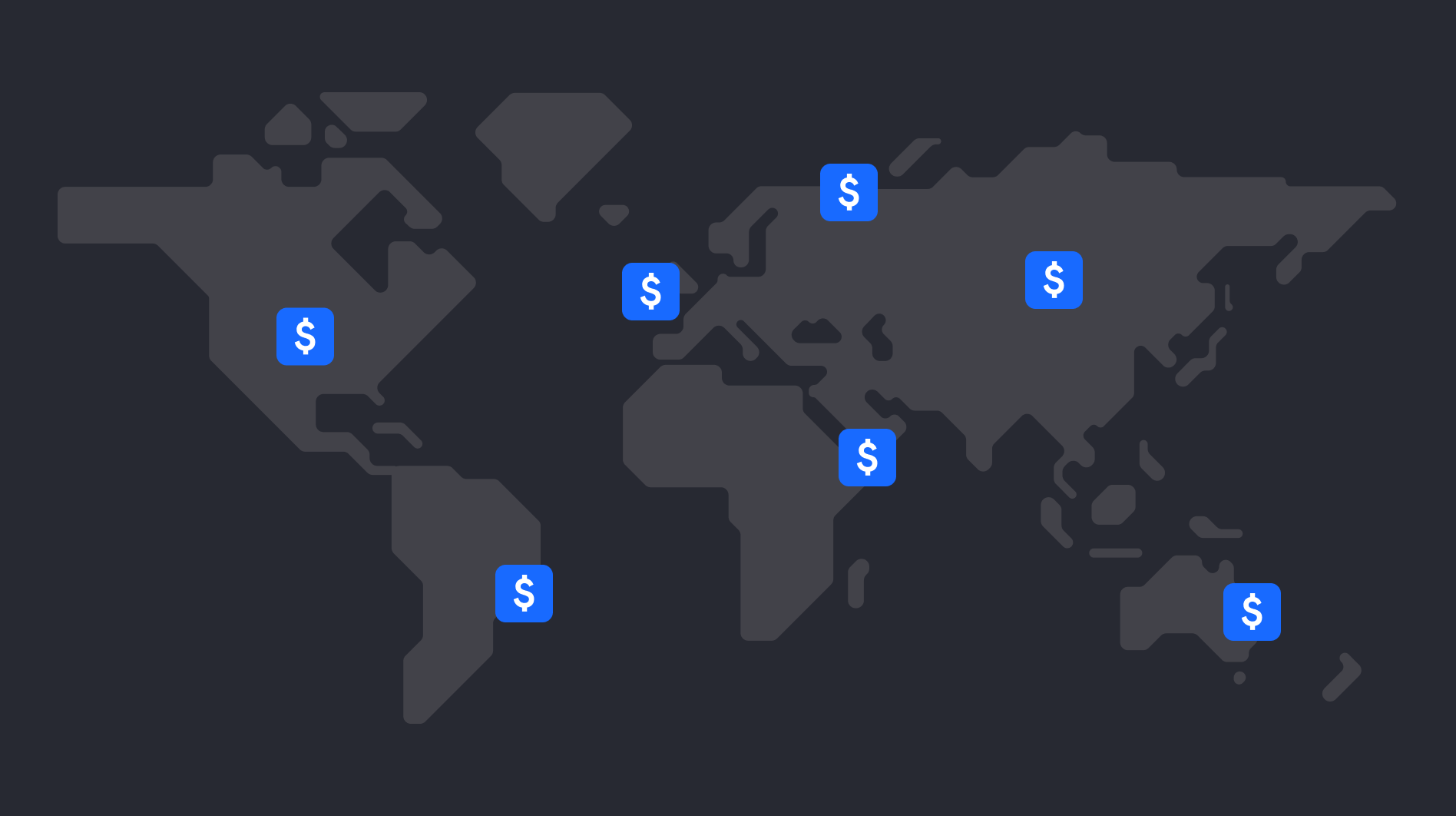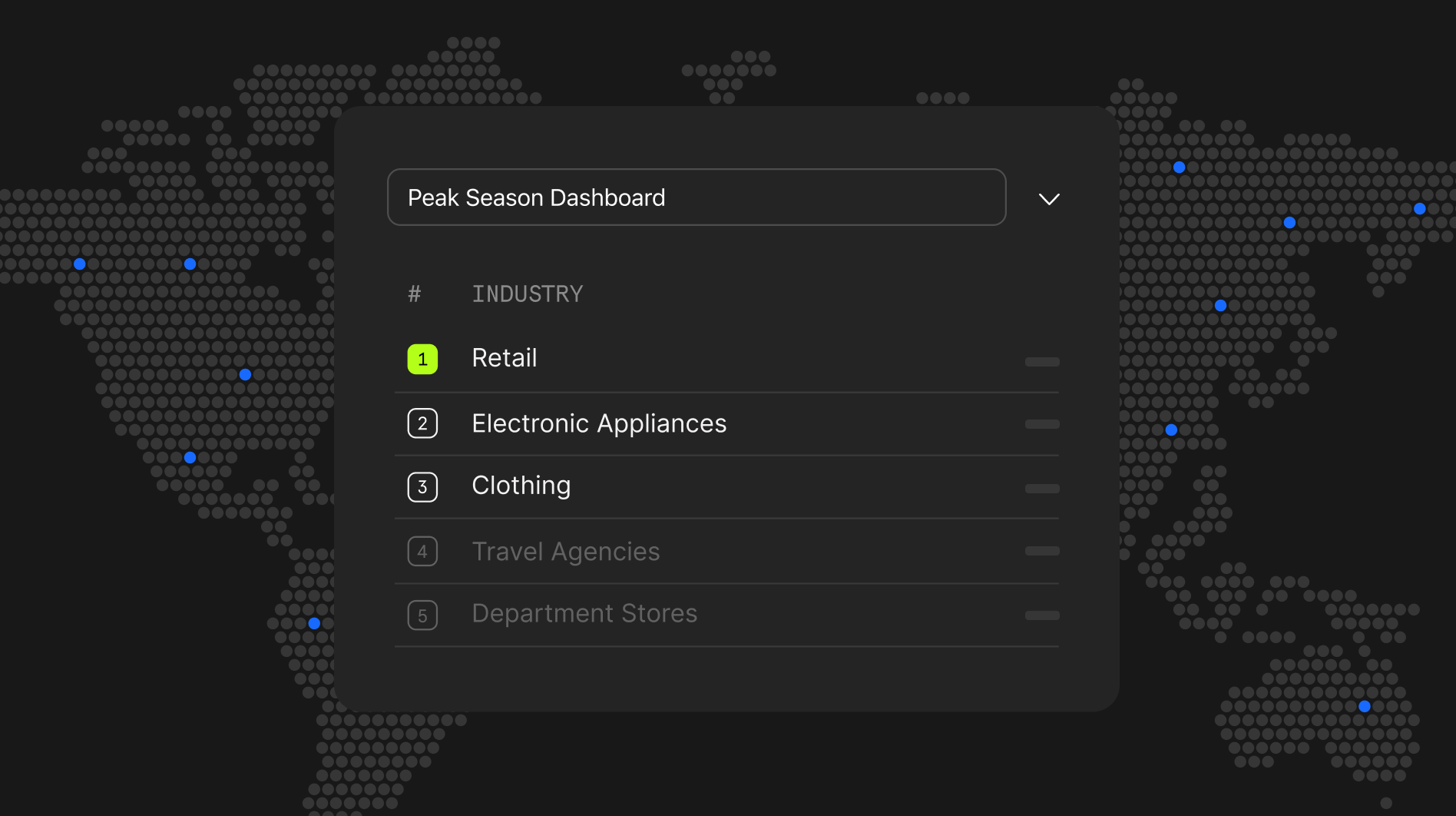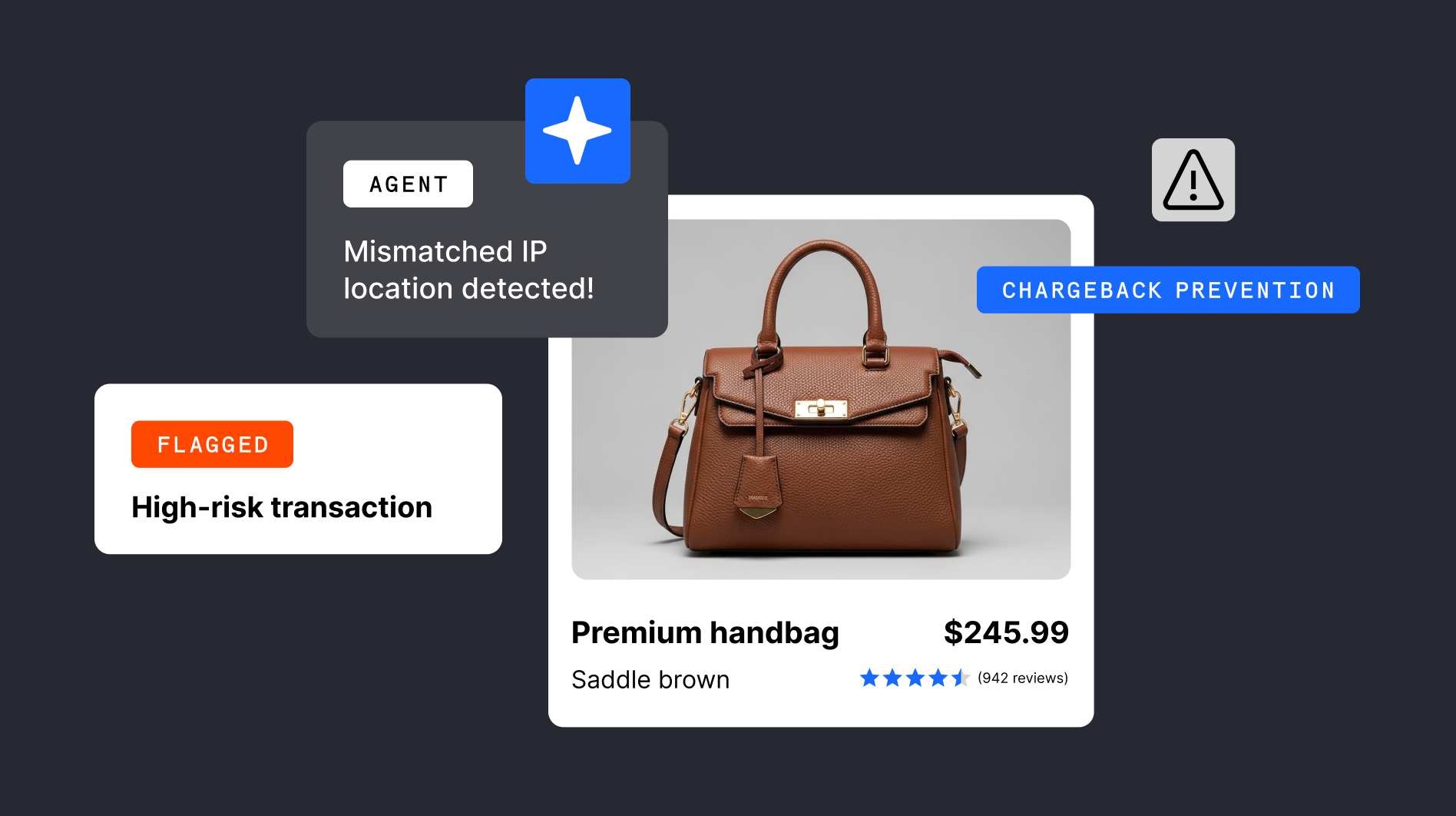Payments are already a knotty subject, the network needed to transport, connect, confirm, and process a transaction is fragmented at best and going cross-border just adds to the complexity. Often it can feel like you need to learn another language when it comes to adding new acquiring rails to accept payments for your business in new regions. Regulations and rails are painfully diverse at the country level and mapping efficient strategies to minimize the pain can feel too cumbersome and time-consuming for businesses to consider. In fact, most businesses report having no local payments strategy, which is a strong indicator of no local acquiring, when expanding. The result of this - an increase in the likelihood of declines and unexpected financial hits from poor cross-border payments strategies. Indeed, a poorly localized payment setup can result in paying hundreds of thousands of dollars in excess payments fees every year. But how often do you really need to worry about cross-border payments? Actually quite a bit – let’s take a look.
3 times local acquiring would have saved your transaction
You may be receiving cross-border payments without even knowing it. Here are five examples of every-day cross-border activity too often overlooked, too often causing failed or expensive payments for merchants.
[fs-toc-omit]The gamer
Let’s say an avid video gamer based in Japan is purchasing Minecraft for their PS5 directly from an online retailer in the USA. This retailer doesn’t have a local acquiring footprint in Japan and instead uses a domestic bank in USA to process the payment. It’s likely the Japanese issuing bank will be unfamiliar with the USA acquirer seeking approval in this situation. And while this doesn’t mean the Japanese issuer will automatically refuse the transaction, it will put it under far greater scrutiny and run a much higher risk of a false decline. Let’s just say it’s not a good gaming experience if the payment gets refused.
A lack of familiarity between issuer and acquirer isn’t the only challenge. Issuers treat authorizations from other countries differently, based on that country’s global risk ratings, irrespective of the bank or the merchant. So if Japanese issuers have experienced high volumes of fraud stemming from the USA recently, they may have a policy in place to automatically reject any authorization requests.
Did you know? The video game market in Japan is expected to reach a value of more than 1.9 trillion yen by fiscal year 2027 but our research shows that Japanese consumers demand hyper-localized and seamless payments experiences compared with other consumers in the APAC region. It’s for this reason, Checkout.com has built local acquiring rails in Japan.
%20(1).png)
[fs-toc-omit]The birthday shopper
A busy father of four living in the UK is a keen online shopper, enjoying the choice, speed, and convenience it offers him – especially when Christmas and birthdays are coming up….eeek! Catering for a range of interests and ages he uses online shopping as a way of securing the perfect gift – often from an overseas company. This time he’s buying an EGAL premium skateboard from a German retailer. But it's vital for him to be able to pay in GBP and not be hit by hefty FX conversion fees. So long as the German retailer has established a local acquiring footprint in the UK it will be able to offer the UK father his desired currency without the fees. If not, the purchase is going to get aborted at the last hurdle
Did you know? In the UK, 56% of shoppers spend money online at least once a week and 10% do so at least once per day. A staggering 40% of UK shoppers say they're shopping online to purchase things not available on their UK high street. To benefit from UK local acquiring you should have a legal entity in the UK, Gibraltar or Switzerland.
[fs-toc-omit]The gig worker
A freelance language tutor, based in the Netherlands, relies on a large marketplace platform to deliver to her global customers. Online platforms that connect buyers and sellers, such as freelancing websites, subscription services, or app stores, can use cross-border acquiring to enable transactions between users from different countries. This simplifies the payment process and expands the platform's global reach. But there can be even more to think about when it comes to a good global strategy. For example, the language tutor in Amsterdam has been contacted by a student in New York who would like to purchase five online lessons to brush up on his business Dutch. Thanks to the fact that the marketplace platform has a US entity and a Payments Service Provider (PSP) who offers US Pinless Debit rails like Checkout.com, the chances of the payment being seamless, low cost, and successful are significantly higher than without. Businesses processing payments from the US today should ensure they have access to Pinless Debit routing in order to secure optimal payments performance.
Did you know? Of the total online cross-border sales generated in Europe, at least 63%, 167 billion euros, was generated by marketplaces last year. This includes global cross-border sellers also selling into the US and China among other markets.
Long story short - Local payments rails matter
Although there are endless cross-border use cases, a robust network of local acquiring capabilities is probably the most undervalued ingredient for driving revenue and cutting expansion costs. Merchants with a legal entity in their expansion markets can take advantage of local acquiring but data suggests they often don’t. The commonly adopted alternative is a messy patchwork of partners – each handling a separate part of the transaction – resulting in a higher risk of a failed payment, not to mention various compound costs and fees. While many merchants lack access to an optimal acquiring network, all too often, it's a problem they’re unaware of. And even when they do spot the issue, the time and effort taken to set up new local payment rails can seem prohibitive. Now it’s time to take a test – how well is your business set up?
Payments rails symptom checker
Are subpar acquiring rails depriving you of performance?
How many did you answer yes to? You’re not alone, many merchants report ‘learning the hard way’ when post-expansion profits are less than forecast. Poor acceptance rates, high fees, and high operating costs compound to create an unhealthy cross-border payments setup. This can be extremely frustrating for payments leaders who know the importance of water-tight payments localization but fail to receive the necessary buy-in and resources from their executive teams. Being able to clearly articulate the costs, and how they’ll add up, can help teams raise awareness.

Cross-border payments growth
Today’s consumer doesn’t see borders. The seamless joy of digital access to goods and services pervades on-screen and in-real-life existences. Online shopping continues to grow and more than a third of consumers globally cite access to cross-border goods and services as a leading reason they shop online.

Equally, as global tourism sees a powerful renaissance, travelers are booking their meals, activities, tickets, travel, and accommodation via their phones – on the hoof. Gone are the days of paper envelopes stuffed full of foreign currency or traveler's cheques.
So the potential for businesses to expand their reach across borders has never been greater, with online commerce powering this cross-border growth. In fact, more than half of merchants with online sales say they have intentions to expand into new geographical markets within the next 24 months via ecommerce channels. Whether their footprint is currently small or already expansive, data from our research conducted with Oxford Economics indicates that businesses are looking to optimize the impressive international reach that the digital economy has to offer.
%20(1).png)
The drive to grow ROI
Cutting the many compounding costs associated with cross-border payments is a fundamental component of a good payments strategy. For many payments leaders, cost control is table stakes good practice. However, increasingly the holy grail of peak payments performance is measured in terms of acceptance rates. Payments leaders tell us consistently that a good acceptance rate is the key benchmark for their success and for proving value to the CFO.

The cost of expansion and of doing business overseas is significant. Stifling your revenue stream with failed payments and inordinate fees leads to a negative return on investment (ROI). It's in this context too that local acquiring provides powerful benefits to businesses. But it doesn't end there.
Data, dynamism, and artificial intelligence
As a PSP with a vast global acquiring network, Checkout.com has put its network to additional use for its merchants with in excess of 20 billion network data points used to train its proprietary artificial intelligence (AI). Intelligent Acceptance is a Machine Learning (ML) solution that, among many other optimizations, automatically formats and amends ISO data to ensure your payments are formatted to scheme and issuers’ unique preferences.

[fs-toc-omit]Get back on track with local acquiring
To summarize: Expansion is expensive and needs to deliver results. To forge ahead without access to local networks, cutting-edge payments technology and partners who have deep on-the-ground experience will almost certainly lead to losses instead of gains. While the thought of getting onto local payments rails may sound time-consuming and complicated, a PSP who can offer quick and simple integration can alleviate these concerns and support you in any market where you have a legal entity. If you think you’re one of the more than half of merchants surveyed who have imminent plans to expand but you’re uncertain of how to execute an optimal payments localization strategy, then download our clear and comprehensive step by step expansion workbook.
%20(1).png)


.jpg)









.png)


